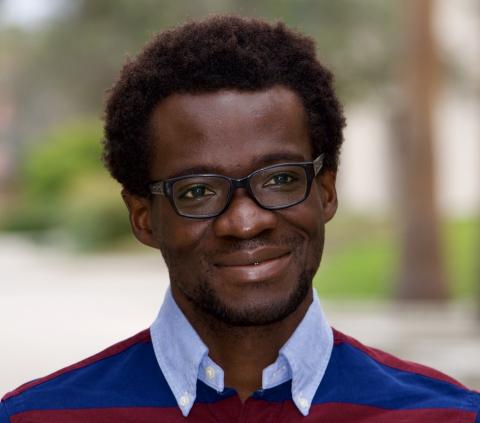Kolade Adebowale, PhD
Faculty Candidate
Postdoctoral fellow in Bioengineering at Harvard University
Wyss Institute
Seminar Information

Therapeutic immune cells have the potential to treat complex diseases. Some therapies, such as CAR T cells, are effective against blood cancers but are not effective against solid cancers, which comprise about 90% of adult cancers. A key requirement of the role of therapeutic cells in tumor eradication is their ability to migrate to and infiltrate the tumor. To accomplish this, cells navigate various mechanoimmunological factors, such as tissue viscoelasticity. One consequence of viscoelasticity is time-dependent stress relaxation - a decrease in stress in response to applied deformation. However, the mechanisms by which viscoelasticity regulates migration are not fully understood. In addition, limited studies have quantitatively compared the transport of cell therapies in tissue-like environments. My research aims to address these research gaps.
To address the potential role of viscoelasticity on 3D cell migration, I developed biomaterials that mimic the stress relaxation behavior of native tissues. I found that enhanced stress relaxation potentiates monocyte migration. Mechanistically, our data support a model whereby WASP-mediated actin polymerization generates physical force at the leading edge of the cell to generate micron-sized channels for cells to migrate through. In a separate project, I integrated macrophage migration data with an unsupervised k-means clustering algorithm to demonstrate that the transport properties of macrophages in tumors depend on macrophage phenotype and morphometric transitions. Together, our studies establish a platform to determine the role of mechanical cues in shaping the immune response to address a long-standing clinical problem: the effective delivery of cell therapies to solid tissues through rational, precision engineering.
Kolade Adebowale is a postdoctoral fellow in bioengineering at Harvard University / Wyss Institute. He received his PhD in chemical engineering from Stanford University. Kolade seeks to integrate engineering design principles to cancer immunology to enable rational engineering and prediction of effective, next-generation immune cell therapies. Further, Kolade strives to understand how the complex functionality of the immune system arises from mechanical cues and simple biophysical principles. Kolade is currently an NIH MOSAIC K99/R00 Scholar. His research has been funded by an NSF MPS-Ascend postdoctoral fellowship, an NIH F31 fellowship, and an NSF GRFP. He is passionate about educating and training the next generation of engineers from all backgrounds and promoting a culture of inclusive excellence.
